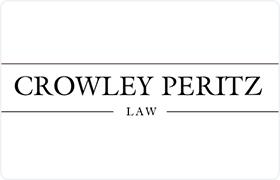Fort Myer Juvenile Law Lawyer, Virginia
Sponsored Law Firm
-
 x
x

Click For More Info:
-
Crowley Peritz Law
10560 Main Street Suite 501 Fairfax, VA 22030» view mapCriminal Defense Law Over 20 Years Of Combined Experience
Our lawyers are experts in a variety of misdemeanor and felony crimes. We understand that choosing the best criminal lawyer for your case is not a simple task.
800-916-2741
Vikrant Padala Reddy
Juvenile Law, State Appellate Practice, Criminal, Administrative Law
Status: In Good Standing Licensed: 16 Years
Michael Ephraim
Juvenile Law, Traffic, Family Law, Criminal
Status: In Good Standing Licensed: 32 Years
Kandace Ann Deisher
Litigation, Juvenile Law, Wills & Probate, Other
Status: In Good Standing Licensed: 11 Years
 Matthew Crowley Fairfax, VA
Matthew Crowley Fairfax, VA Practice AreasExpertise
Practice AreasExpertise
